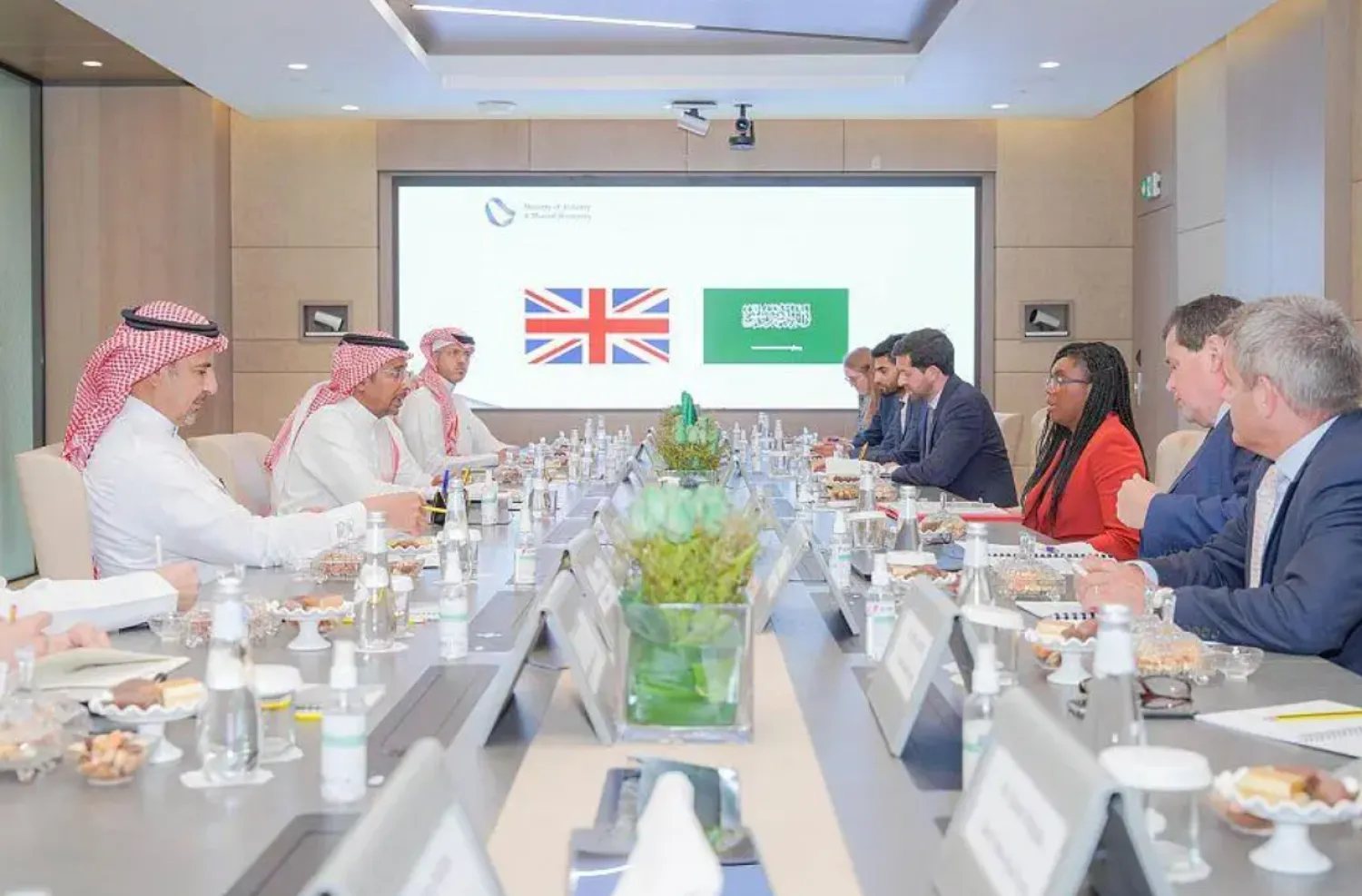Saudi Minister of Industry and Mineral Resources Bandar Al Khorayef and the United Kingdom’s Secretary of State for Business and Trade, Kemi Badenoch, have signed a declaration of intent, solidifying their commitment to jointly develop resilient and responsible critical minerals supply chains in support of the global energy transition.
Critical minerals are vital in producing various technologies, including electric vehicles, wind turbines, and solar panels.
“Saudi Arabia and the United Kingdom share a common vision of ensuring the availability of minerals necessary for the energy transition, while upholding high sustainability standards,” said Al Khorayef on Thursday. "Our collaborative approach emphasizes international collaboration."
The shift towards a low-carbon economy necessitates an unprecedented supply of minerals. For instance, lithium supply will need to increase by approximately 700%, nickel production by around 100%, and copper production by roughly 50% between 2020-30 compared to 2010-2020 within a 1.5°C-degree pathway.
The agreement between Saudi Arabia and the UK aims to increase the global supply of critical minerals. This partnership will also prioritize the sustainable and responsible production of critical minerals.
Al-Khorayef explained that this step is part of increasing cooperation in bilateral relations between the two countries in the industrial and mining sectors and contributes to supporting joint global efforts to reach the green future sought by the international community.
He stressed that Riyadh and London share a vision aimed at ensuring the availability of minerals necessary for the transition to clean energy, while maintaining high standards of sustainability, as the declaration of intent will allow the two countries to diversify supply chains for critical minerals for several mineral intensive industries, including manufacturing, aviation of electric vehicles, defense, and renewable energy.
Badenoch said: "Critical minerals are essential to our everyday life - from electric vehicles and medical devices to wind turbines and solar panels.
She added that the signed agreement will strengthen UK’s partnership on supply chain resilience and industrial cooperation.
The agreement will focus on the following areas of cooperation: Developing a shared understanding of critical minerals strategies and resilience of supply chains, encouraging the replacement and recycling of critical minerals, establishing a unified vision for the mineral industry that aligns with global environmental standards and promotes social contribution, with coordination in multilateral forums supporting the flow of essential minerals.
Engaging the private sector to identify new critical mineral supply chains and exploring joint investment opportunities encouraging partnerships between companies and industry to increase supply chains.
Identifying collaborative research opportunities on clean mineral production techniques, resource efficiency, recycling, and other relevant technologies facilitating knowledge exchange on projects, skills development, and practical initiatives relating to critical minerals.









